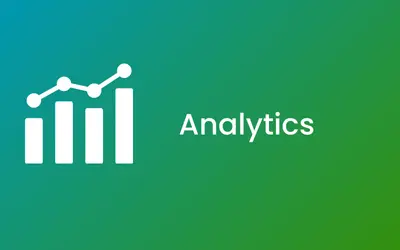Analytics is a rapidly growing field that involves gathering, processing, and interpreting data to make informed decisions. With the rise of big data and the increased need for data-driven insights, there is a high demand for professionals with analytical skills. In Cape Town, there are several institutions that offer analytics courses to help students and working professionals acquire these skills. One such institution is the University of Cape Town (UCT). UCT's Graduate School of Business (GSB) offers a Postgraduate Diploma in Management Practice (PGDip), which includes a specialisation in Analytics. The program is designed to equip students with the knowledge and skills needed to effectively analyse data and use it to make informed business decisions. The PGDip is a part-time program that takes 18 months to complete, and it is ideal for professionals who want to upskill while continuing to work. Another institution that offers analytics courses in Cape Town is the University of Western Cape (UWC). UWC's Department of Statistics and Population Studies offers a BSc Honours degree in Statistics, as well as a Postgraduate Diploma in Applied Statistics. These courses are designed to equip students with the ability to analyse and interpret complex data, as well as to develop statistical models to aid decision-making in a wide range of fields. Cape Peninsula University of Technology (CPUT) also offers a range of analytical courses, including a BSc degree in Data Science, a BSc Honours degree in Applied Mathematics and a Postgraduate Diploma in Information and Knowledge Management. These courses are designed to provide students with hands-on experience in the tools and techniques used in data analysis, as well as to develop an understanding of data ethics and the social implications of data use. Another provider of analytics courses in Cape Town is GetSmarter, which offers online data analysis and report writing courses. These courses are designed to equip students with the practical skills and techniques needed to gather, analyse and present data in an informative and visually compelling way. The courses are flexible and can be completed in a matter of weeks, making them ideal for those who want to upskill quickly or do not have the time to commit to a full-time program. In conclusion, there are several institutions in Cape Town that offer analytics courses designed to equip students with the skills needed to analyse data and make informed decisions. Whether you are a working professional looking to upskill, or a student seeking to pursue a career in analytics, these courses offer a solid foundation in data analysis and provide opportunities for hands-on experience in the tools and techniques used in the field.

₹60,000


Watch how students, freshers, and professionals transformed their careers with Skillfloor's Analytics Courses Reviews
Hurry Up!
Limited seats call us now for amazing discounts on Analytics Courses course



Skillfloor is a Government-Recognized Skill Development Institute under Startup India (DPIIT), offering career-focused certification programs in Analytics, Artificial Intelligence (AI), Data Science, Digital Marketing, SEO, and related domains. As one of India's largest training institutes, our courses emphasize hands-on projects, expert mentorship, and skills aligned with real hiring needs. With flexible learning options - online, offline, and hybrid, plus 100% scholarships for selective students, we make quality, job-ready education accessible.
Explore the program that aligns with your goals and take the next step with Skillfloor.



- Overview of data analysis and its importance in business
- Types of analytics: Descriptive, Predictive, Prescriptive
- Role of data in decision-making processes
- Introduction to common tools: Tableau, PowerBI, Excel
- Ethical considerations in data collection and analysis
- Data sources: Primary and secondary data
- Data collection methods (surveys, web scraping, databases)
- Data cleaning techniques (handling missing values, outliers)
- Data transformation and feature engineering
- Data storage concepts (structured vs. unstructured data)
- Descriptive statistics: Mean, median, mode
- Data visualization basics (histograms, scatter plots)
- Identifying data patterns and trends
- Outlier detection and handling methods
- Correlation and causation analysis
- Inferential statistics and probability theory
- Hypothesis testing (t-tests, chi-square tests, ANOVA)
- Measures of central tendency and variability
- Confidence intervals and margin of error
- Regression analysis: Linear and logistic regression
- Principles of effective data visualization
- Types of charts and their uses (bar, line, pie, heatmaps)
- Designing dashboards for different audiences
- Interactive visualization techniques
- Data storytelling for impactful presentations
- Time series analysis and forecasting methods
- Clustering and segmentation analysis
- Decision trees and classification techniques
- Introduction to machine learning in business analytics
- Model evaluation and selection
- Basics of SQL for data manipulation
- Creating databases and relationships
- Aggregating data with SQL (GROUP BY, JOIN)
- Data modeling for business intelligence (star and snowflake schemas)
- Case study: Building a business model with SQL
- Connecting and preparing data in Tableau
- Creating basic visualizations (charts, maps)
- Advanced Tableau functions (LOD calculations, table calculations)
- Building interactive dashboards and stories
- Publishing and sharing visualizations on Tableau Server/Online
- Introduction to PowerBI workspace and components
- Data import and transformation with Power Query
- Data modeling and relationships in PowerBI
- Creating and customizing visualizations
- Publishing and collaborating on PowerBI Service
- Selecting a real-world dataset for analysis
- Defining business questions and objectives
- Conducting data analysis and visualization
- Presenting findings in a comprehensive dashboard
- Peer review and feedback on project